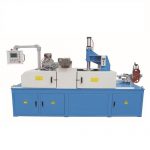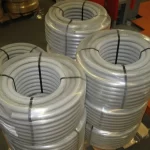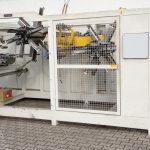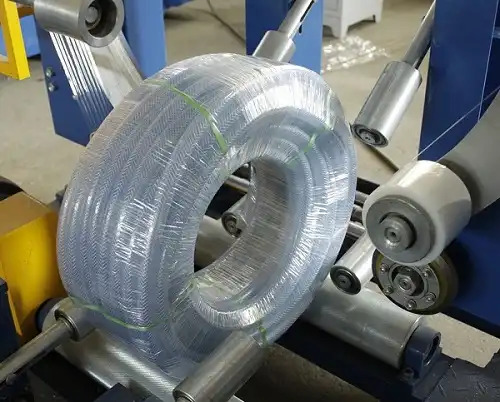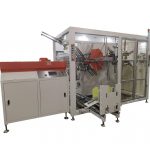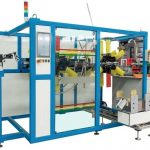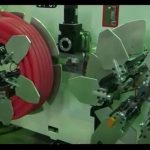How to Evaluate the Durability and Reliability of Different HDPE Pipe Coiling Machines
Evaluating the durability and reliability of HDPE pipe coiling machines is crucial for any business involved in pipe manufacturing and distribution. Choosing the right machine can significantly impact operational efficiency, cost-effectiveness, and overall productivity. This comprehensive guide will help you assess the critical factors when selecting an HDPE pipe coiling machine.
Understanding HDPE Pipe Coiling Machines
HDPE (High-Density Polyethylene) pipe coiling machines are designed to coil HDPE pipes efficiently. These machines are essential in managing the storage and transportation of pipes, ensuring they are compact and easy to handle. Understanding their functionality is the first step in evaluating their durability and reliability.
Key Features to Consider
When evaluating HDPE pipe coiling machines, it’s vital to consider certain features that directly impact their performance. These include:
- Material Quality: The construction material of the machine affects its longevity. Machines made from high-quality steel or aluminum are more durable.
- Coiling Speed: Faster coiling speeds can enhance productivity but may require more robust components to handle the stress.
- Customization Options: The ability to adjust settings for different pipe sizes and materials adds versatility.
Assessing Durability
Material and Build Quality
The material and build quality of a coiling machine is a primary indicator of its durability. Machines constructed from robust materials like stainless steel tend to withstand wear and tear better than those made from weaker materials. Additionally, examining the welding and assembly quality can provide insights into the machine's longevity.
Design and Engineering
The design and engineering of the machine play a crucial role in its durability. Well-engineered machines often incorporate features that reduce stress on moving parts, such as advanced gear systems and shock absorption mechanisms. These designs help prevent premature wear and extend the machine's lifespan.
Maintenance Requirements
Consider the maintenance requirements of the machine. Durable machines typically require less frequent maintenance and have readily available parts for repairs. Reviewing the manufacturer’s maintenance guidelines can give you an idea of the machine’s upkeep needs.
Evaluating Reliability
Performance Consistency
Reliability is often measured by a machine's performance consistency. A reliable HDPE pipe coiling machine should perform consistently under various operating conditions without frequent breakdowns. Testing the machine in different scenarios can help assess its reliability.
Manufacturer Reputation
The reputation of the manufacturer can provide insights into the reliability of their machines. Established manufacturers with a history of producing high-quality equipment are more likely to offer reliable coiling machines. Researching customer reviews and industry feedback can be invaluable.
Warranty and Support
The availability of a comprehensive warranty and support services is another indicator of a machine’s reliability. Manufacturers confident in their products typically offer robust warranties and excellent customer support, ensuring any issues are promptly addressed.
Cost vs. Value
While evaluating the durability and reliability of HDPE pipe coiling machines, it's essential to consider the cost versus value. A higher upfront cost may be justified if the machine offers superior durability and reliability, leading to lower maintenance costs and longer service life.
Technological Advancements
Modern HDPE pipe coiling machines incorporate technological advancements that enhance their durability and reliability. Features like automated controls, real-time monitoring, and advanced diagnostics can improve machine performance and reduce downtime.
Environmental Considerations
Considering the environmental impact of a coiling machine is becoming increasingly important. Machines that are energy-efficient and have lower emissions not only contribute to sustainability but can also be more reliable in the long run.
Case Studies: Industry Examples
Examining case studies from industries that have implemented HDPE pipe coiling machines can provide practical insights. These examples highlight real-world applications and outcomes, showcasing how different machines have performed under various conditions.
Future Trends in HDPE Pipe Coiling Machines
Understanding future trends in HDPE pipe coiling technology can help businesses make informed decisions. Innovations in materials, automation, and smart technology are shaping the next generation of durable and reliable machines.
Conclusion
In conclusion, evaluating the durability and reliability of HDPE pipe coiling machines involves a thorough analysis of their construction, performance, and manufacturer reputation. By considering factors like material quality, design, technological advancements, and cost-effectiveness, businesses can select machines that meet their operational needs and contribute to long-term success. Investing in the right equipment not only enhances productivity but also ensures sustainable growth in a competitive market.
